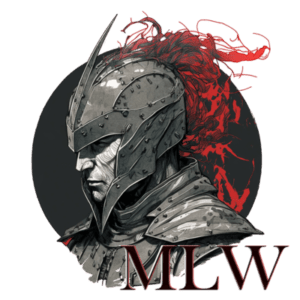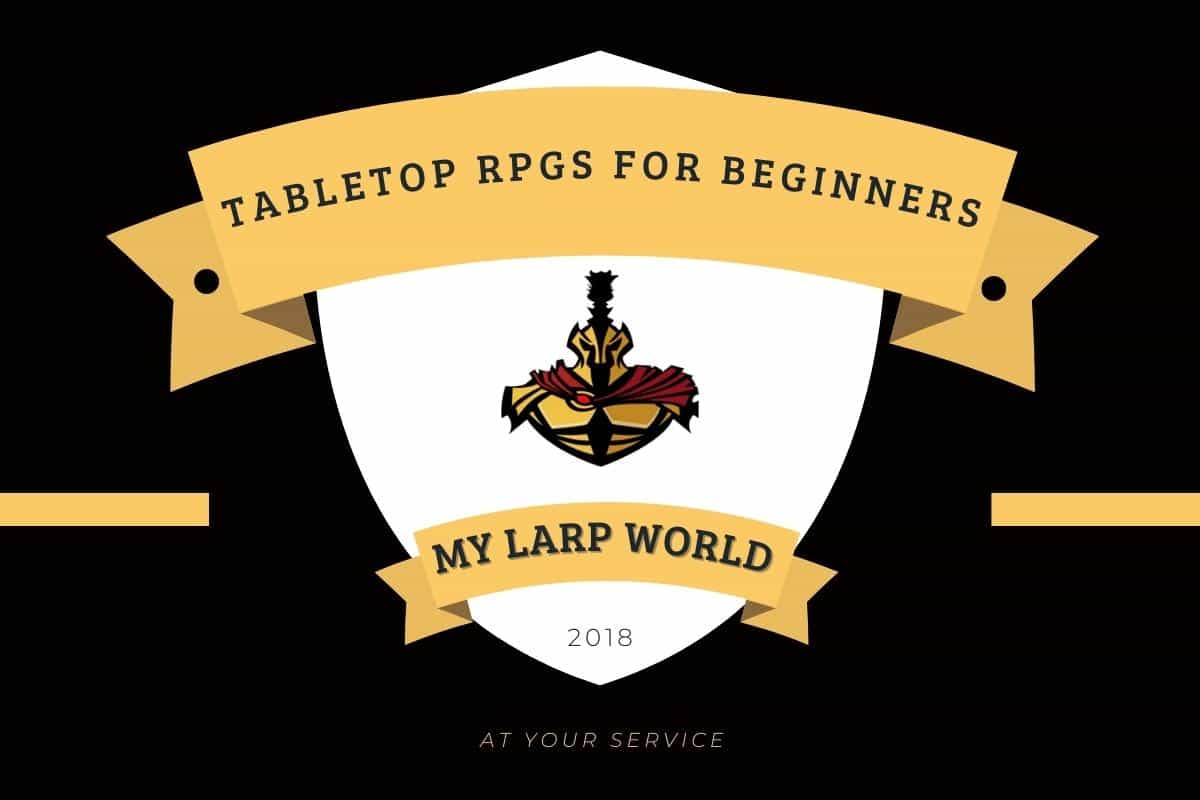I remember when I started playing tabletop roleplaying games back in the day. I was firmly determined that it would require a great effort in order for me to reach the level of understanding of the game that I needed to not be a burden to the rest of the group.
This turned out to be far from the truth. I learned the basics of most of the games we played rather quickly. I believe the ability to get positive feedback upon your first time trying – in comparison to feeling like you don’t understand anything, is incredibly important.
The easiest way to achieve this is by playing a game that’s easy to digest. Picking a system with a lower threshold will make it easier for newer players to adapt to the system and begin to understand it. This will make for a much better overall experience.
Thankfully, there are plenty of beginner-friendly tabletop games that are incredibly well-made. You’ll even find that games labeled as beginner-friendly are often suitable for more seasoned players too.
Today, we’ve compiled a list of all the tabletop roleplaying games we recommend to those who are just starting out. Regardless if you’re the only new player at the table or if the entire party is new, these options will offer a good time.
1. Fiasco
Fiasco is a story-telling co-op game. The creators have done a great job with the narrative points, something pivotal for a game like this to work. The game’s atmosphere and the story have been compared with the work of the Cohen brothers’ films.
A reason why Fiasco works great for beginner TTRPG players is the length. Playing DnD for 6-7 hours in a row is daunting for a beginner, and a good idea is to start out with shorter, more concise sessions.
Fiasco takes about 1.5-3 hours to complete, a timespan that is fairly short in Roleplaying terms. The rules are really easy to understand, as well.
In DnD and other similar TTRPGs, there is something called a “one-shot”, which is precisely what Fiasco is. You can start and complete it within the same session. As I mentioned before, this is beneficial for beginner players.
2. Quest
Quest is a TTRPG that is known for being very appropriate for new players. It’s similar to DnD in its most fundamental sense. The game comes with a card deck, which some players (including me) think helps with looking up information instead of searching a thick book.
The game has recently gone free to play, which makes another reason for new players to try it out. The economic investment of TTRPGs is oftentimes reason enough for new players to be scared away, but you don’t have that with Quest.
In DnD, you use multiple dice. In Quest, you simply use one d20 dice. This helps a lot with coherency for first-time players. The less clutter the better. Speaking of less clutter, Quest does not focus as much on fighting as other TTRPGs like DnD or Pathfinder.
Instead, the narrative rules. I really like the flavor text on things like spells. Each spell says something about your character and its’ story. All-in-all, it’s a less hardcore version of DnD, and something I can really recommend.
3. Call of Cthulhu
Call of Cthulu is a TTRPG from 1981, which to this day is very popular. Call of Cthulu is based on the works of author H.P. Lovecraft, who has written a ton of short stories and books. The theme of these books can be summed up as cosmic horror.
It’s certainly a different twist than say DnD or Quest, but it’s refreshing. Call of Cthulu uses the Basic Role-Playing (BRP) system, which is designed to be simple and easy to understand. Call of Cthulu does not suffer gameplay-wise because of this, mind you.
It’s still one of the most popular TTRPGs in the world today, and if you like horror and mystery, this game is for you.
4. Goblin Quest
Goblin Quest is a quirkier take on the TTRPG genre. It is a one-shot TTRPG, which means that you can start and finish a story in the same session, which is as I mentioned earlier, useful for beginners.
In Goblin Quest, you and your party are goblins. The gameplay runs in the same vein as traditional TTRPGs such as DnD but is simpler in a few ways. For one, you don’t need a DM.
Goblin Quest is a really original experience and easy to get into, and I really recommend this game for beginners.
5. Dread
Dread is one of the outliers on this list. It does not play as a traditional TTRPG, because Dread uses Jenga instead of dice. Although this might be confusing at first, it’s a lot of fun when you get into it.
Dread does not take place in a traditional fantasy setting either, instead, the theme of the game is horror. The game is a breath of fresh air as far as TTRPGs go, and the rules are simple which is nice for new players.
Playing with Jenga and not dice also means that the game is more easily accessible to new players, in my opinion.
6. Lady Blackbird
Lady Blackbird is a self-described adventure module, which is meant to be played over a couple of sessions. Lady Blackbird is available as a free pdf. This is really fitting for beginner players as I’ve mentioned earlier, as you don’t have to invest anything economically.
The game is played with pre-generated characters, which helps new players out. It has a solid base story taking place in a steampunk-ish setting. One of the best things about Lady Blackbird is that you don’t have to prep like you have to in for example DnD.
This means that it will be less daunting for newer players and therefore a smoother introduction to the TTRPG genre.
7. Dungeon World
Dungeon World is an alternative to DnD. Beginners may find this easier to get started with, because of the more narrative-focused design. If you dislike crunching numbers in the middle of a game, this option is preferable to DnD.
Dungeon Worlds combat is easier for beginners to understand than other traditional games like it. To keep it on the shorter side here, Dungeon World does not make use of dice as much as other games. I have personally known beginner players who really appreciated this.
8. Pathfinder
Pathfinder is the next-biggest TTRPG out there after DnD. Now, Pathfinder isn’t strictly less complicated than DnD in any way, shape, or form. However, it is another option for beginner players to decide what they like best.
A good variety of options for picking your TTRPG is important in my opinion, which makes Pathfinder a good option for this list. Some might even say that Pathfinder is a bit more complex than DnD, which isn’t saying that much. They’re both easy to understand once you get into them.
9. Traveller
Traveller (yes, they spell it that way) is an old-school TTRPG from 1977. The key difference between Traveller and the other TTRPGs on this list is that Traveller is a sci-fi game.
Traveller takes place in space, on starships, and on different planets. If you’re a fan of things like Star Trek, this is the most obvious option for you. Gameplay-wise, it has different base stats and such from games such as DnD.
It’s a fine game for beginner TTRPG players, especially if you like sci-fi.
10. Dungeons and Dragons 5E
DnD absolutely works as a starting game for beginner TTRPG players. It has such an array of content and ways to play, that you can play no matter what level of experience you have. Adventures range from actual year-long campaigns to dungeon crawls you can clear in a matter of hours.
5E is an especially beginner-friendly edition of DnD and seeing as it’s the newest edition, that’s what people play nowadays. We love DnD, and once you get used to the rules and ways to play, there’s few experiences that compare with it.
You don’t need a lot of resources to play DnD, either. Check out our other article on what you need to get started in DnD!
11. Savage Worlds
The last game on this list is Savage Worlds. This game is cool because the creator’s design intent was to make a game that didn’t demand a long time of preparation. The game is also meant to be played a lot faster than other TTRPGs, which as I’ve mentioned numerous times, is nice for new players.
Savage Worlds also has a system that is supposed to be intuitive and easy to master, something that they’ve created successfully in my opinion. Setting-wise, Savage Worlds offers a lot of flexibility. You can play high-fantasy, low-fantasy, or not even fantasy at all if that’s what you want.
How To Get Started With Tabletop RPGs
There are some things that are worth thinking about when first starting out with TTRPGs. Get started with shorter stuff first, whether that’s one of the games I’ve suggested above or one-shot DnD dungeon crawls.
Another good thing to have in mind is not to do anything too wild or complicated with your first character. Stick with the basics, and you’ll have a good time. More advanced stuff comes later on when you have fully understood the rules and such.
Try to be as comfortable as you can with your roleplaying! It’s only natural that it feels a bit strange at first, and that’s ok. If your group is good then they will encourage you and be welcoming.
The last piece of advice I have to give is: buy some dice. There are plenty of good value dice set out there.
What’s the Easiest Roleplaying Game To Play?
Personally, I would say Savage Worlds or Dungeon World as opposed to DnD. That doesn’t mean that DnD is hard to play, however. It just takes a little while to get into the rules.
Every TTRPG is easy once you get the hang of it. Don’t let the initial learning curve scare you away from trying any TTRPG you want to play.
What’s the Most Popular Tabletop Roleplaying Game?
The most popular TTRPG is without a doubt DnD. In the second place, with a great margin, comes Pathfinder. However, DnD is without a doubt the biggest. It’s enjoyed by millions all over the world.
What’s the Shortest Tabletop Roleplaying Game?
Fiasco is probably one of the shorter ones. Of course, there are thousands of TTRPGs in total, so it’s hard to say. DnD one-shots can be really short as well.

